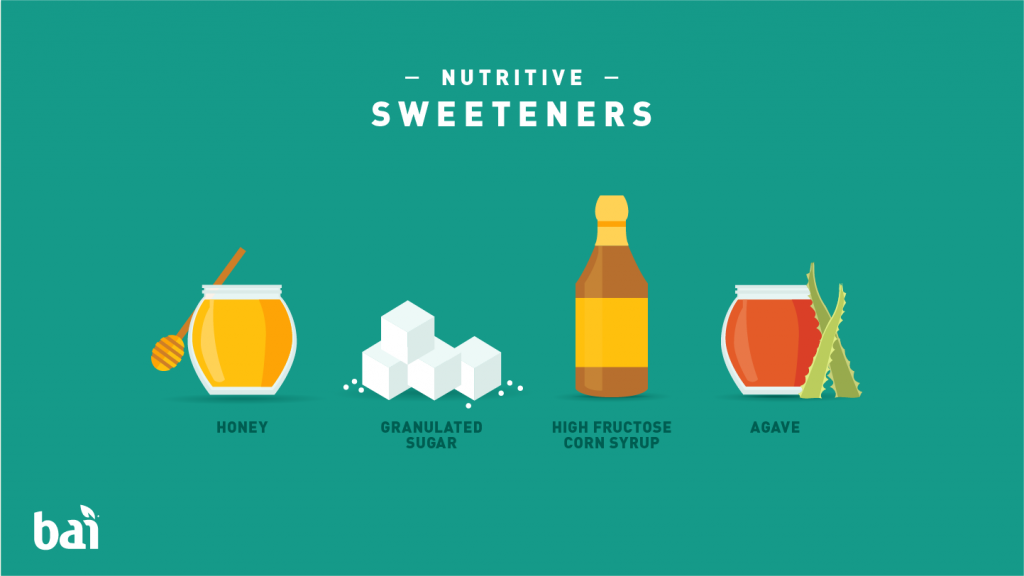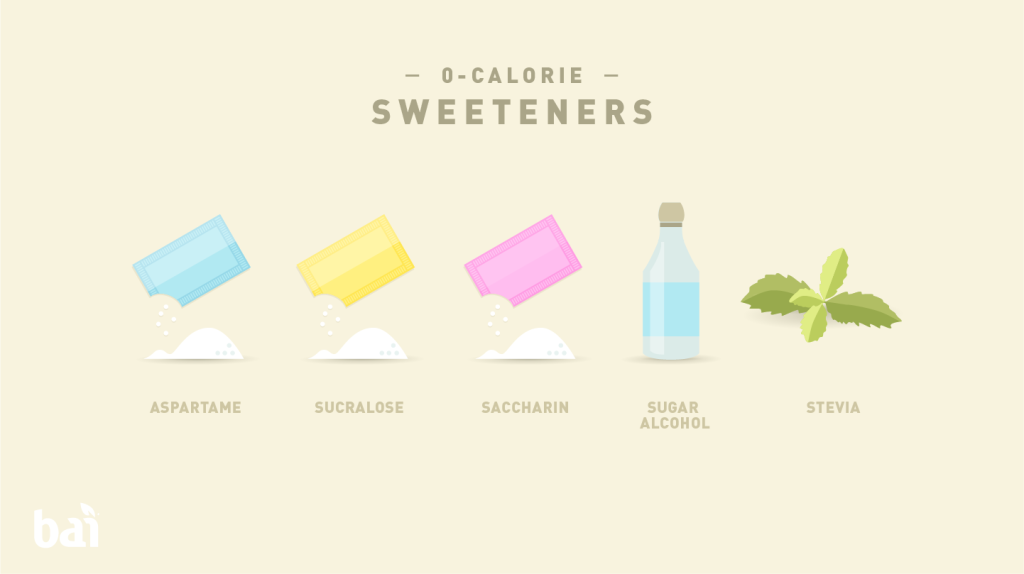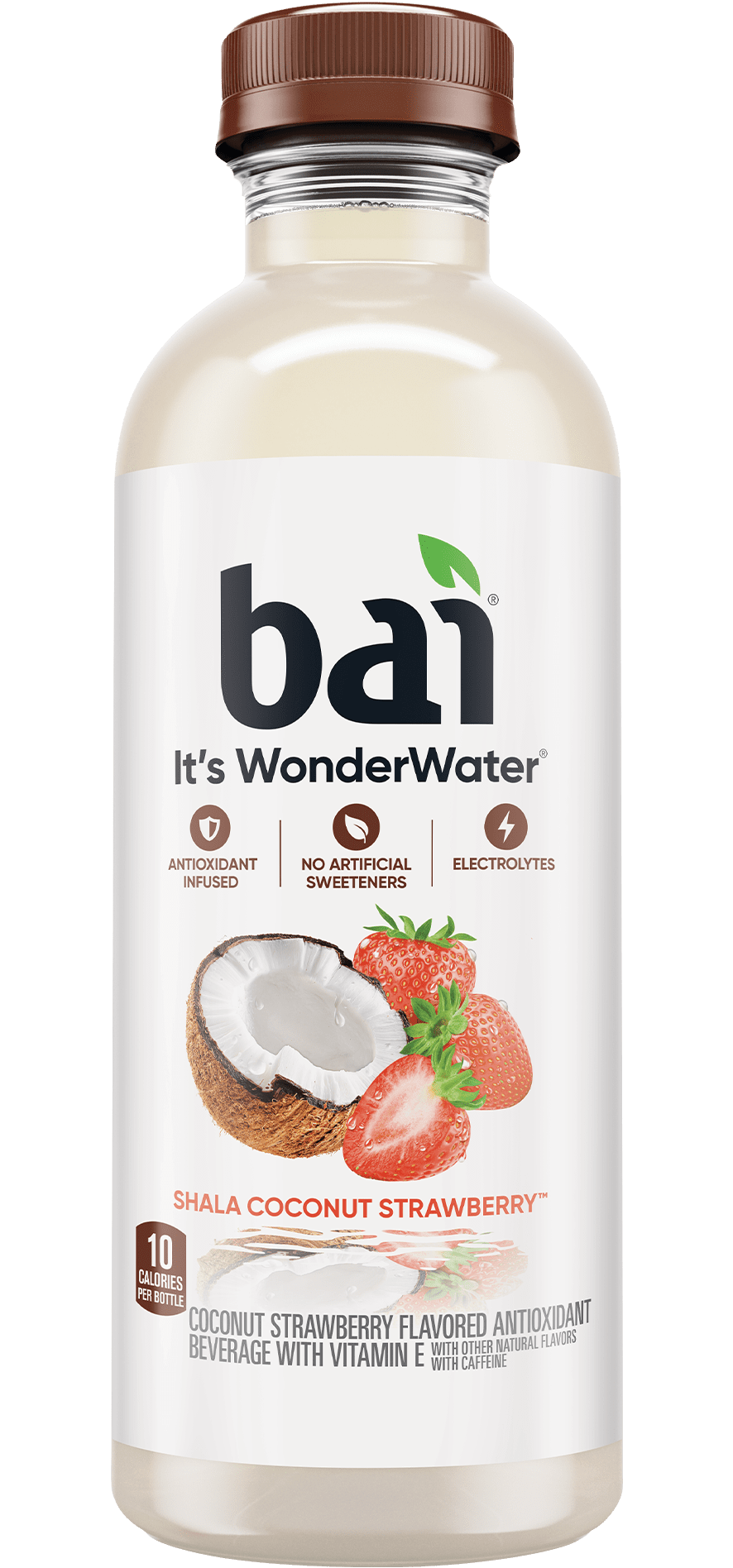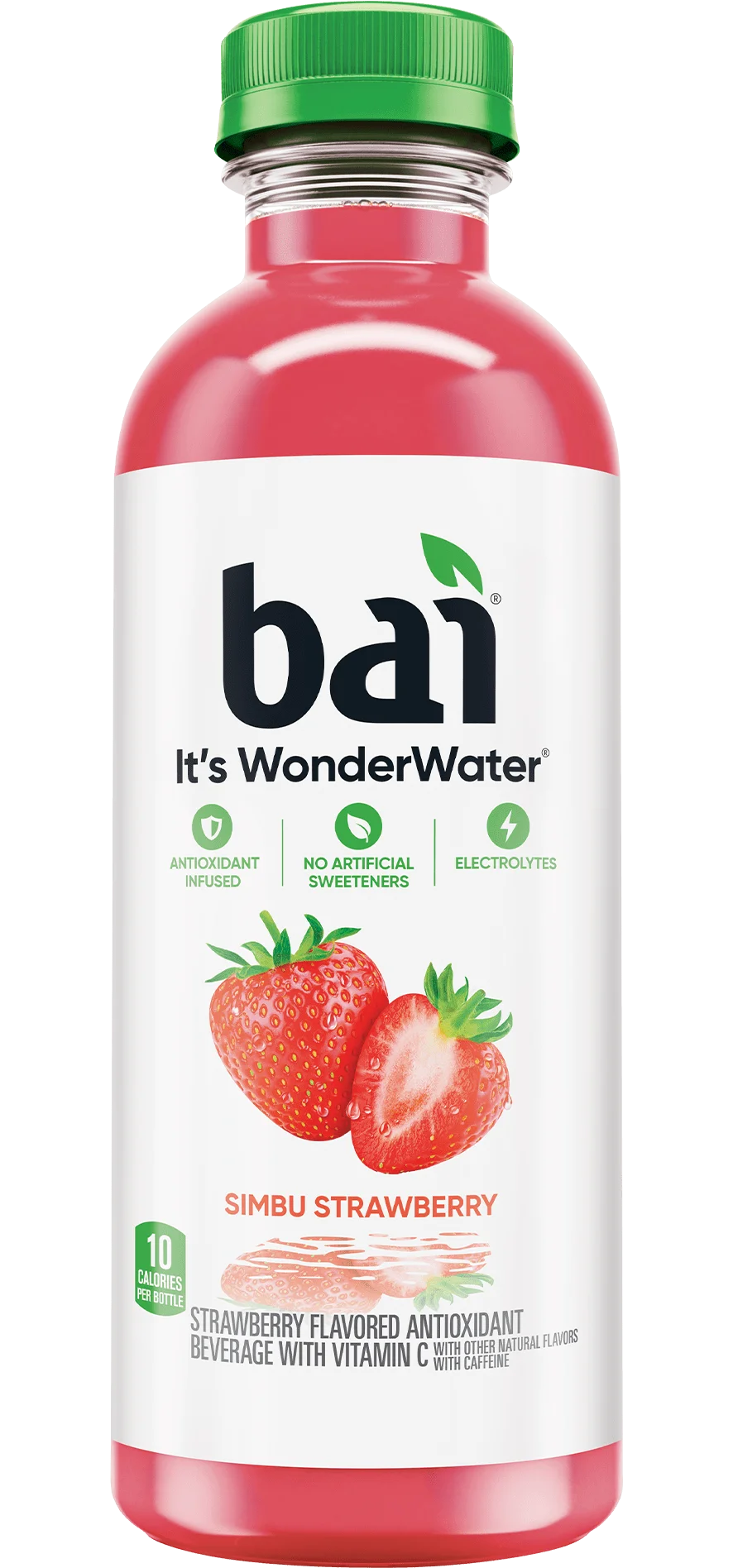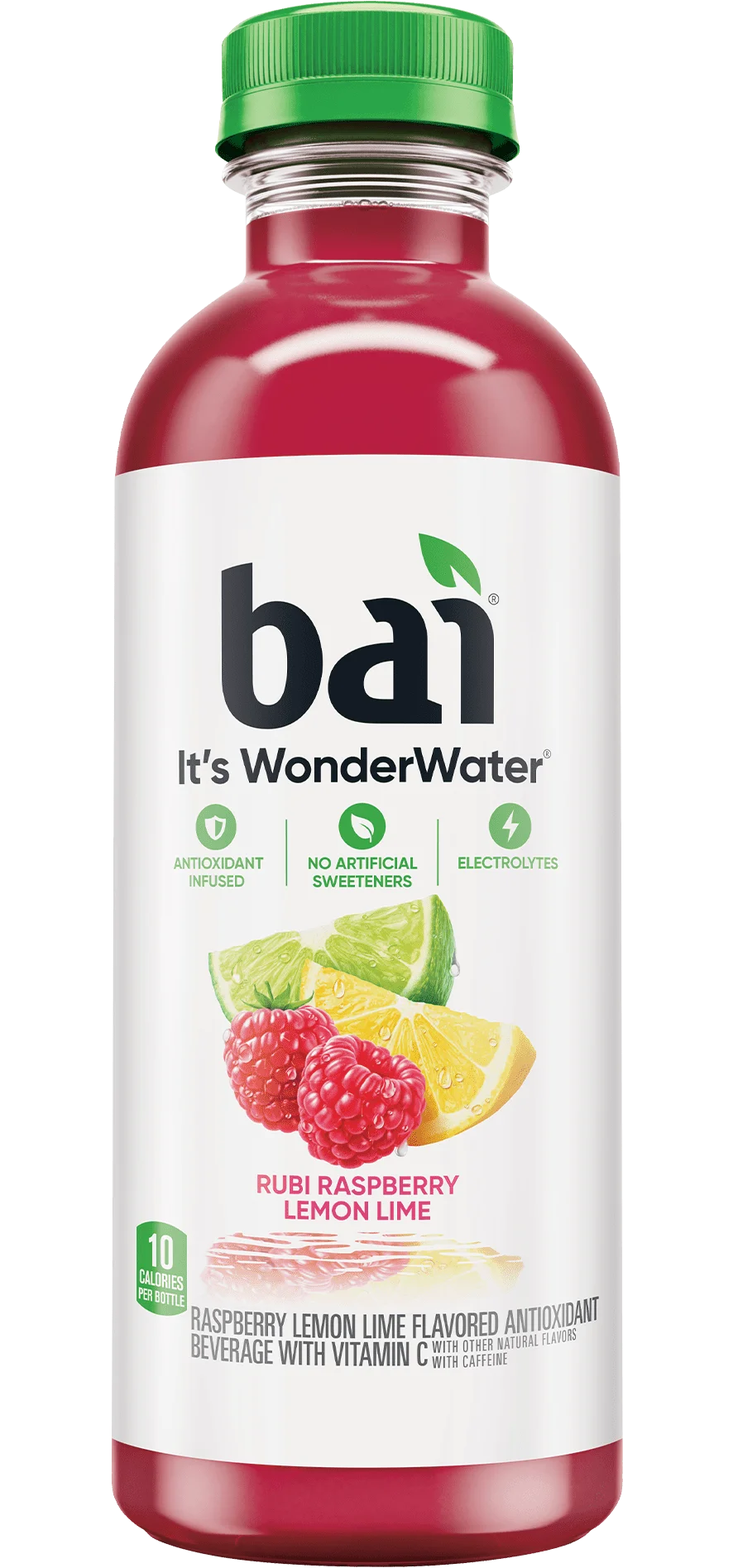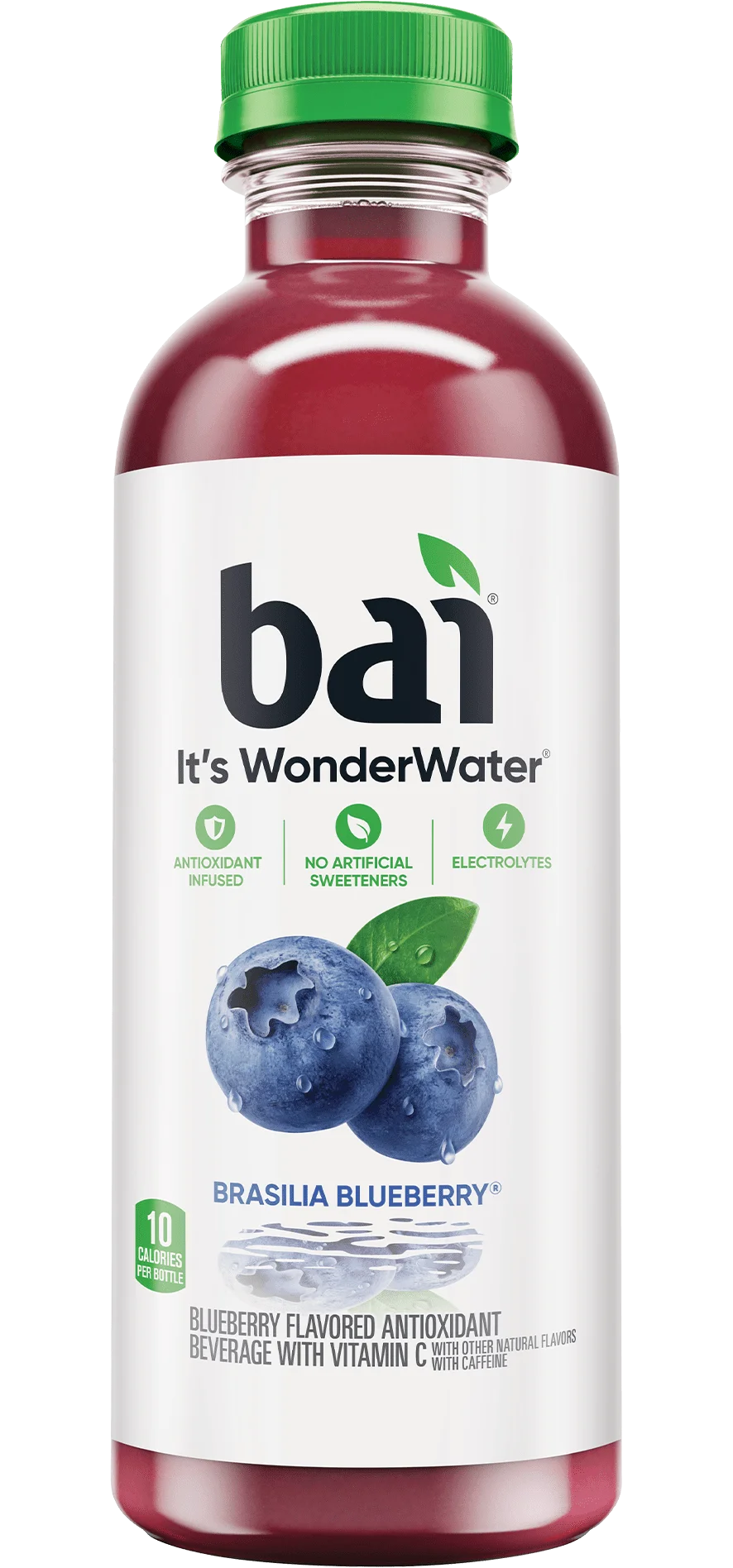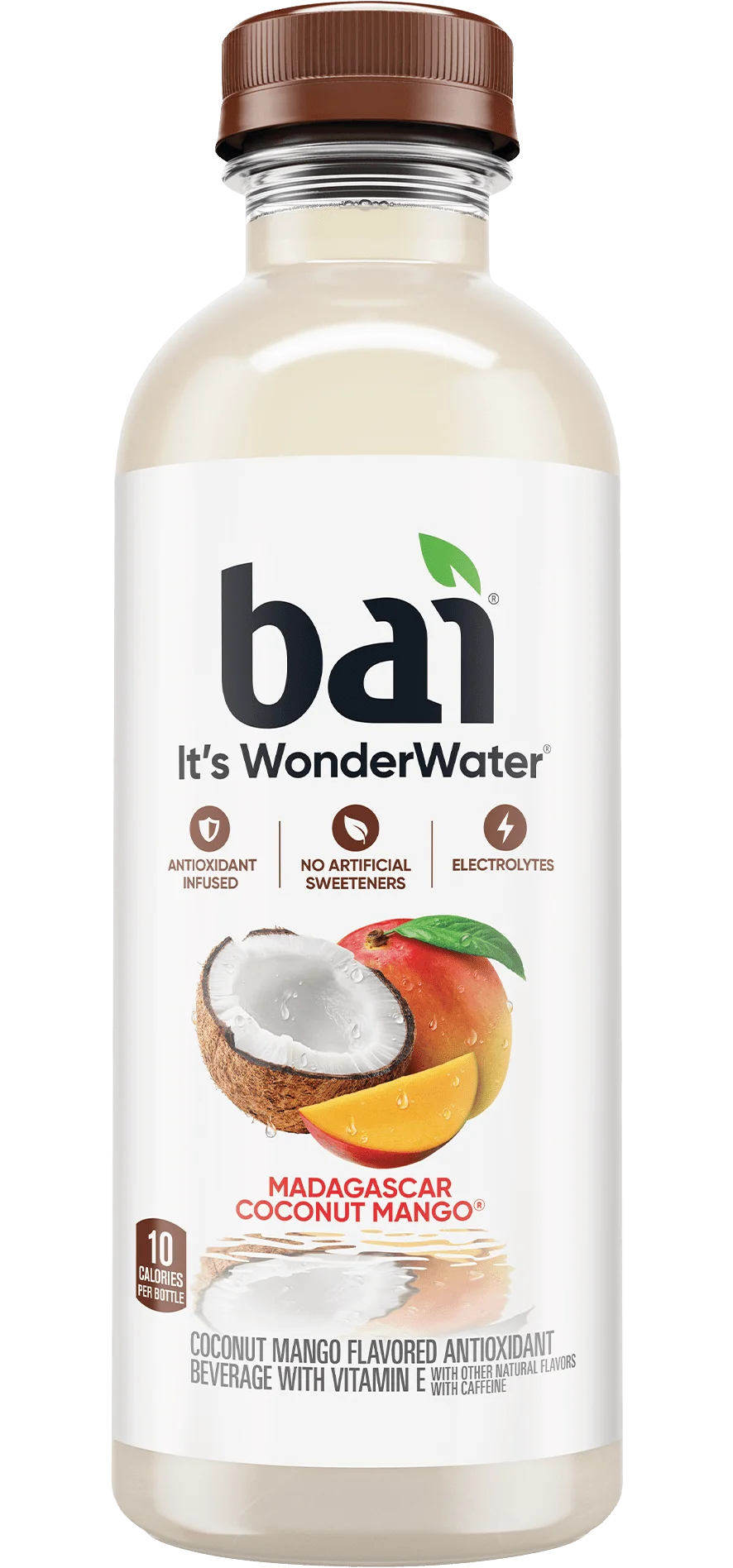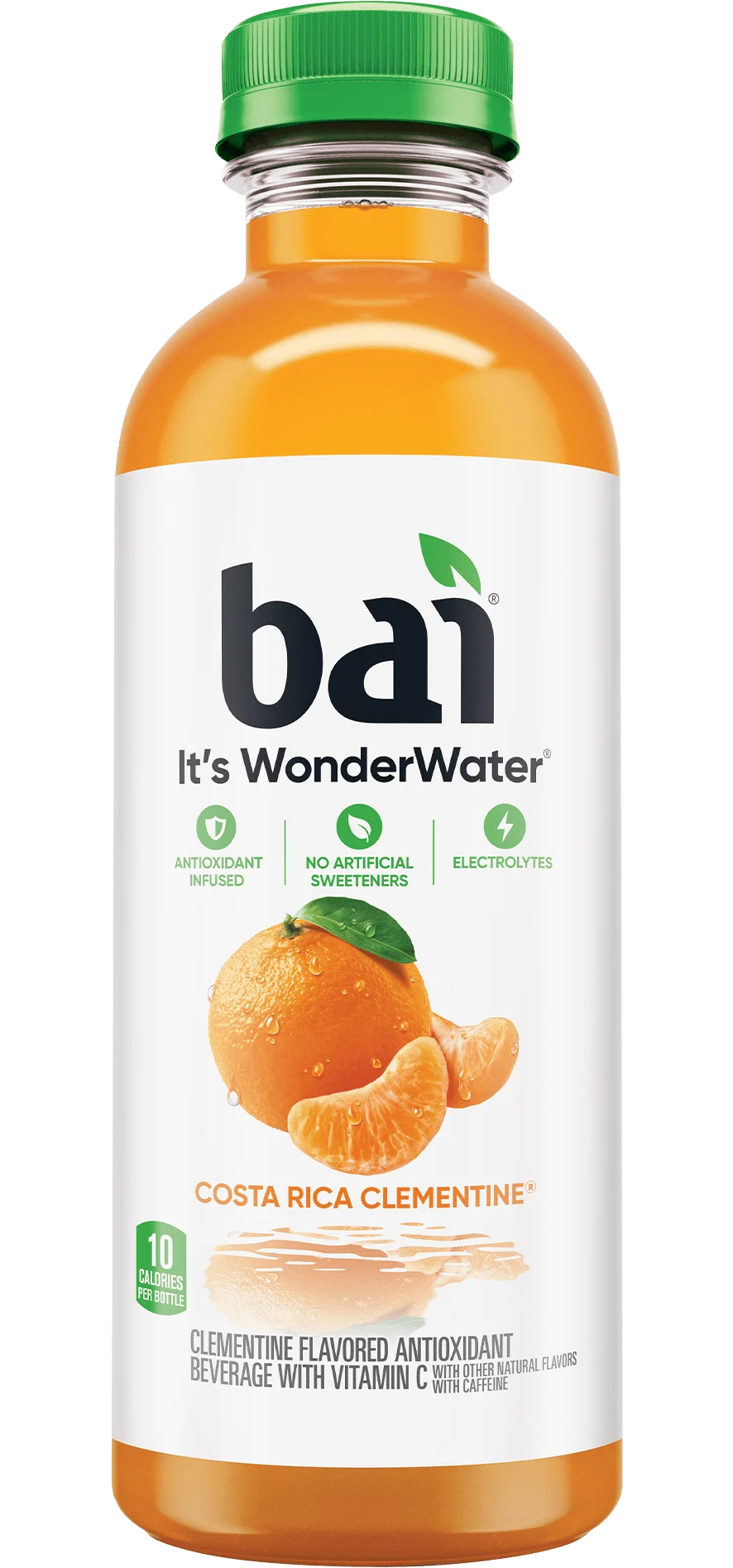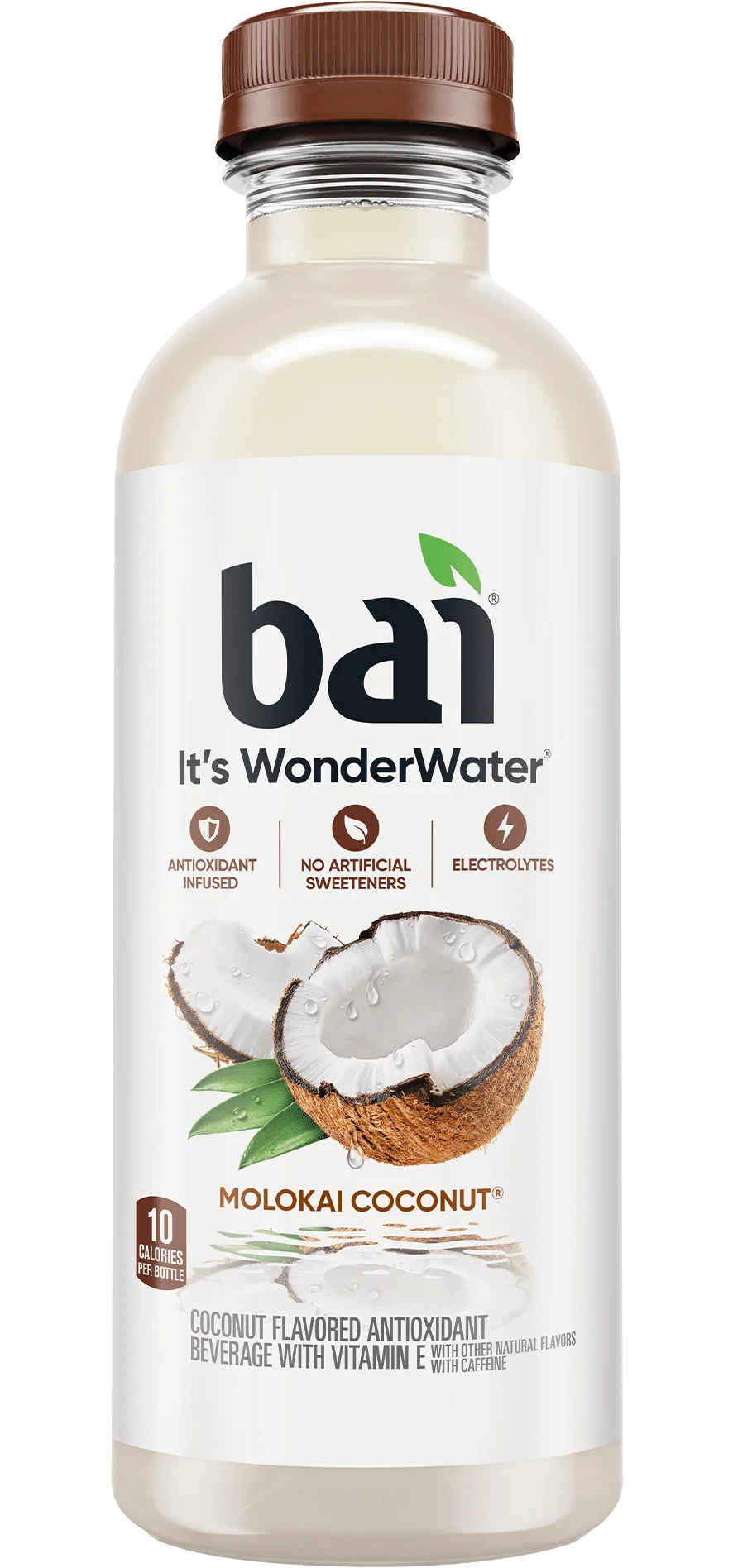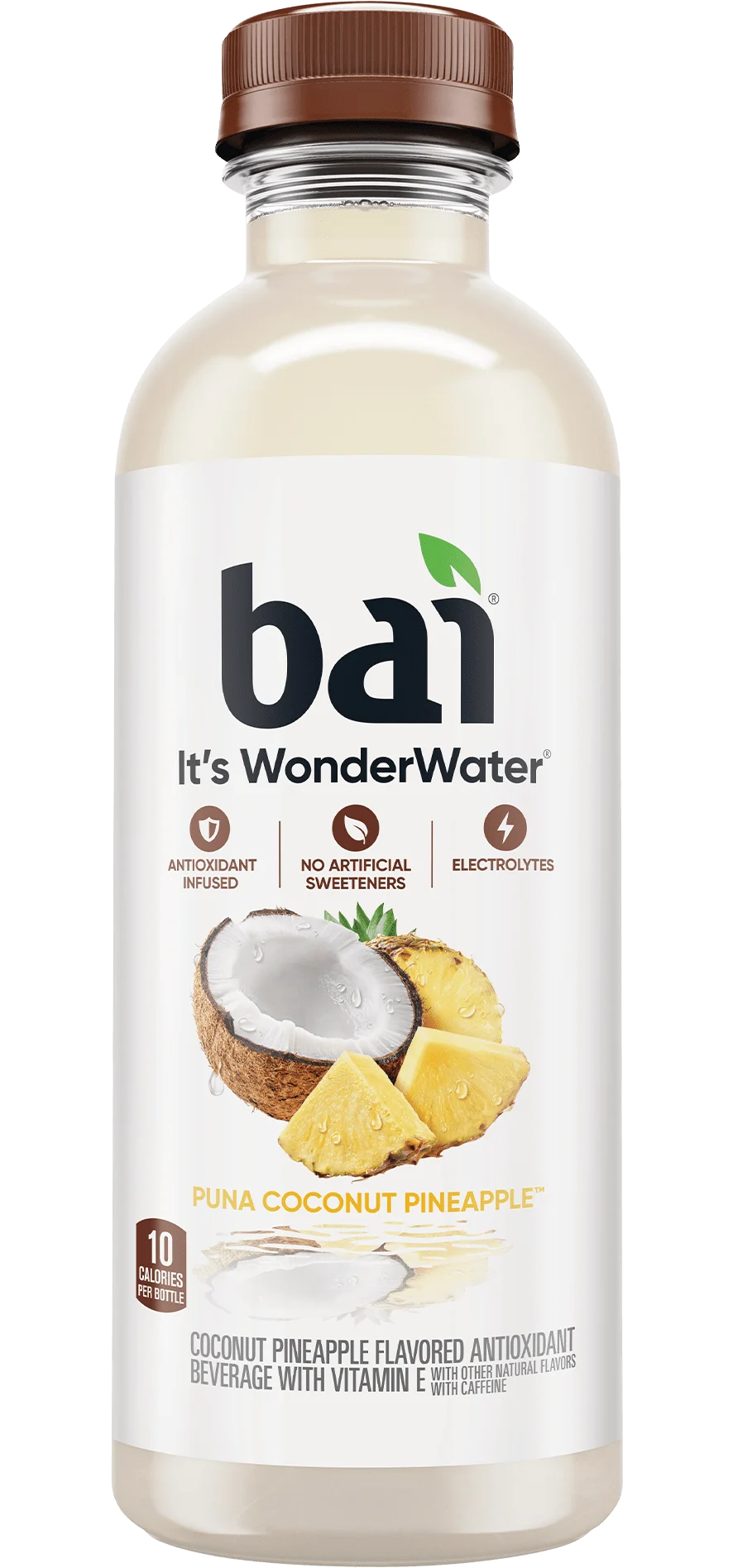Check the nutrition label of foods and drinks with any level of sweetness, and from crackers to frosting and anywhere in between, you’ll find one or more sweetener. Many common foods are disappointingly high in added sugar. To put it into perspective:
- 40% of the calories in Raisin Bran (76 calories/190 cal serving)
- 52% of Black Cherry Chobani’s calories (68 cals/130 cal 5.3-ounce container)
- 100% of the calories in Vitamin water (130 cals/ 130 cal 20-ounce bottle)
- and 100% of Coke’s calories (140 cals/ 140 cal 12-ounce can)
come from added sugar. These excess calories are the reason we’re sweet-talking in the first place. Newsflash: they’re not good for you.
Studies have shown innumerable negative health effects related to excess sugar consumption. A diet perpetually high in sugar can cause damage all over your body, including your digestive tract, arteries, nerves, kidneys, eyes and more.
To make sure you’re up to speed on all things saccharine, we’ve done our best to compile info on the most popular (both nutritive, aka caloric, and non-nutritive) sweeteners on the market. So from now on when you see these guys on nutrition labels, you know what you’re up against.
Table Sugar
Sucrose, the plain ol’ granulated sugar you see in baking recipes (and plenty of other places), is made of equal parts glucose and fructose. 1 gram of sugar runs you 4 calories, so one 12.6 gram tablespoon contains 48 calories. The American Heart Association has concluded the healthy daily limits for added sugar intake (keyword: added. This number doesn’t limit natural sugar from things like fruit) for men and women are 150 and 100 calories, respectively. So theoretically you could spend that on about 10 sugar packets- each containing 2.8 grams of sucrose, 11 calories, and nothing else.
In Conclusion: Nutritionally, table sugar has diddly squat to offer other than calories. And these, my friend, are commonly called empty calories. Aside from a blood sugar spike, you get absolutely no bang for your buck when it comes to sucrose- no vitamins, no minerals, nada.
Honey
Honey has 64 calories per 21g tablespoon, again all from sugar. It contains small amounts of some B-vitamins, vitamin C, and choline, but perhaps in too small of amounts for you to actually reap the benefits (unless you’re eating a cup per day, which… please don’t). It also contains oligosaccharides, which are non-digestible carbohydrates that feed the beneficial bacteria in your gut.
The sugar profile in honey is a bit different from sucrose, and the differences in composition evidently cause honey to have a lower glycemic index than table sugar and allow for easier digestion.
In Conclusion: honey is considered by many to be a better alternative to processed white sugar. While it does contain more calories per tablespoon due to its density, honey may not pose such a detrimental impact on blood sugar as sucrose does because of its lower GI.
High Fructose Corn Syrup
The oh-so-notorious High Fructose Corn Syrup contains 57 calories per 20g tablespoon. HFCS is present in foods ranging from the obvious like soda and candy to the not-so-obvious like bread and mac n’ cheese. It’s essentially made by breaking down cornstarch into its glucose building blocks. Enzymes then convert a large amount (usually 55%) of the glucose to fructose, which is slightly sweeter.
Fructose is considered to be such a demon in the nutrition world because it skips over a ‘rate-limiting’ part of carb metabolism, which would typically limit the rate (shocker) at which sugars are converted to stored fat. Therefore, fructose is slightly more prone to being converted to fat than other sugars. This rapid fat transformation is why studies have shown a link between high HFCS consumption and non-fatty liver disease.
In Conclusion: High Fructose Corn syrup has a slightly higher fructose:glucose ratio than table sugar, and high consumption of fructose has been shown to have detrimental metabolic effects. PS- although fruits are high in fructose, the natural fiber and nutrients they contain help keep blood sugar regulated.
Agave Nectar
Agave nectar contains 60 calories per 21g tablespoon, and what we have to tell you about agave may come as a surprise. When the sugars are first extracted from the agave plant, compounds called fructans are present. They have been shown to have a beneficial impact on insulin regulation and weight management, but in reality, these fructans are broken down before the nectar even enters a bottle. So no luck on that front.
Agave is a minimum of 57%- but more commonly upwards of 90% (seriously!)- fructose. And considering what you now know about fructose’s effects on your body (Re: HFCS), you may want to think twice before picking up a bottle o’ nectar.
In Conclusion: Sure, agave nectar comes from a plant. But refining processes make it fairly nutritionally void, despite the potential benefits its raw form originally had to offer. Studies even show it’s worse for your health than table sugar (and potentially even HFCS). Don’t be fooled by the ‘all natural’ labels.
Nobody’s denying added sugar is bad for you. Cue scientists doing their best to find a substitute. Here’s the lowdown on some of the most well-known low/no-cal substitutes on the GRAS (Generally Regarded As Safe) list.
Aspartame
At about 200 times sweeter than plain sugar, aspartame can be found in things like diet sodas, light yogurts, and even some baby foods. It’s also the main sweetener in Equal. Because of its heavy use in the food industry, it’s also one of the most studied. And it’s been shown that there is no link between aspartame and cancer or other chronic diseases. What some studies do show, however, is that there may be a link between aspartame intake and increased appetite, and therefore weight gain.
One study (which we referenced in our past post regarding sugary soda intake) tracked aspartame consumers over 7-8 years, who showed an overall increase in waist circumference and BMI. Another revealed weight gain in regular aspartamers- even more than people who consumed products sweetened with comparable amounts of sucrose. Plus, more studies are coming out that show when mothers consume aspartame during pregnancy, the offspring are more susceptible to obesity and metabolic syndrome later in life.
In Conclusion: No, aspartame does not have a proven link to chronic diseases; however, it has been proven to interfere with hormonal hunger responses (like insulin spikes without the sugar reward, leaving you even hungrier than before), which can lead to weight gain issues down the line.
Sucralose
Despite having 0 calories, sucralose (responsible for Splenda‘s success) can be 1,000 times sweeter than sucrose, and is present in things like diet sodas, coffee creamers and 100-calorie pudding cups. Multiple studies show no serious health risk due to the consumption of sucralose, however other studies suggest other potential issues.
One study found that subjects who consumed sucralose displayed significant negative effects on their ability to regulate glycemic load and insulin levels compared to the control (who were given a comparable amount of glucose). Another study found that although the conscious mind can’t distinguish between the sweetness of sucrose and that of sucralose, the subconscious pleasantness responses of the brain can. All of which means you can’t outsmart your body. Insulin spikes/crashes + no actual sugar in the blood= crazy cravings.
In Conclusion: yes, sucralose is on the GRAS list. Yes, you can consume it without being worried that your chance of developing cancer will increase. But when you realize that your month-long sugar cravings have left you with an extra few pounds, those innocent-looking yellow packets may be your downfall.
Saccharin
No-cal saccharin is about 300-400 times sweeter than sugar and is found in products like diet sodas (no surprise there), and low-calorie jellies and syrups. There’s a rumor floatin’ around that Sweet’N Low (aka saccharin in a pink packet) can cause bladder cancer, but that conclusion was found to be inaccurate because scientists have confirmed that the urine chemistry of rats is not close enough to that of humans for the results to be applicable. Plus, the rats used were given gigantic doses. Way more than any human would ever realistically consume. So we’re in the clear on that one.
But yet again, there have been other studies that show negative effects of saccharin regarding weight gain. One study found that subjects who consumed yogurt sweetened with saccharin and aspartame gained more weight than people who consumed the same yogurt sweetened with sucrose. And get this: the overall diets of both groups were pretty similar calorie-wise. So these findings suggest that saccharin plays a direct role in converting nutrients to fat.
In Conclusion: Seeing a trend? Saccharin, along with other manufactured chemical sweeteners, can influence metabolic responses conducive to weight gain.
Sugar Alcohols
Many calorie-free sugar alcohols, such as xylitol, mannitol, sorbitol and erythritol, are approved for use as food additives (not distinctly as ‘sweeteners’ because some work as thickening agents). They occur naturally in certain foods but are now, for the most part, manufactured artificially for quality control. Some can have effects on blood sugar.
One exception is erythritol, which is still found naturally in certain fruits and is also a product of the fermentation of corn. It gets absorbed in the small intestine, but humans don’t have the enzymes to break it down, so it enters the urine totally unchanged. It also therefore doesn’t have the opportunity to enter your large intestine, which is where many other sugar alcohols can cause some serious bloating.
In Conclusion: Not all sugar alcohols are created equally, but erythritol has been shown to completely avoid breakdown in the human body- meaning it has no effects on metabolism, blood sugar, or hunger responses.
Stevia
Stevia is isolated from a plant and is roughly 300 times sweeter than table sugar and it’s been used as a sweetener all over the world since ancient times. It causes no negative effects on blood sugar or insulin levels. In fact, one study showed that consuming stevia resulted in lower blood sugar counts and insulin levels compared to consuming comparable amounts of aspartame or sucrose. Another found that stevia provided relief for liver and kidney damage in diabetic subjects. Other studies have also found benefits of stevia consumption in relation to both blood pressure and pancreatic cancer.
In Conclusion: Because of its natural origins, its proven health benefits and its lack of negative effects on hormonal hunger responses, stevia is widely regarded as the front-runner in the 0-calorie sweetener race.
Some Sweet Facts
- 1) Think ‘fat free’ versions of your favorite foods (crackers, salad dressings, ice cream, etc) are better for you? Think again- food companies just make up for the lost texture and flavor with added sugar. Check out the nutrition labels of both versions side-by-side; you’d be surprised.
- 2) According to the FDA, food manufacturers can legally label anything with under 5 calories as ‘0’ calories. So while a packet of sweetener might be listed as 0-cal, the dextrose fillers in it can run you up to 4 calories per packet. Think about that next time you dump a few into your morning and afternoon coffee. That stuff can add up.
- 3) The bacteria in your mouth don’t have the enzymes to break down sugar alcohols. This allows sugar-free gum companies to label their product as ‘anti-cavity‘- because it doesn’t feed the bacteria that causes them.

